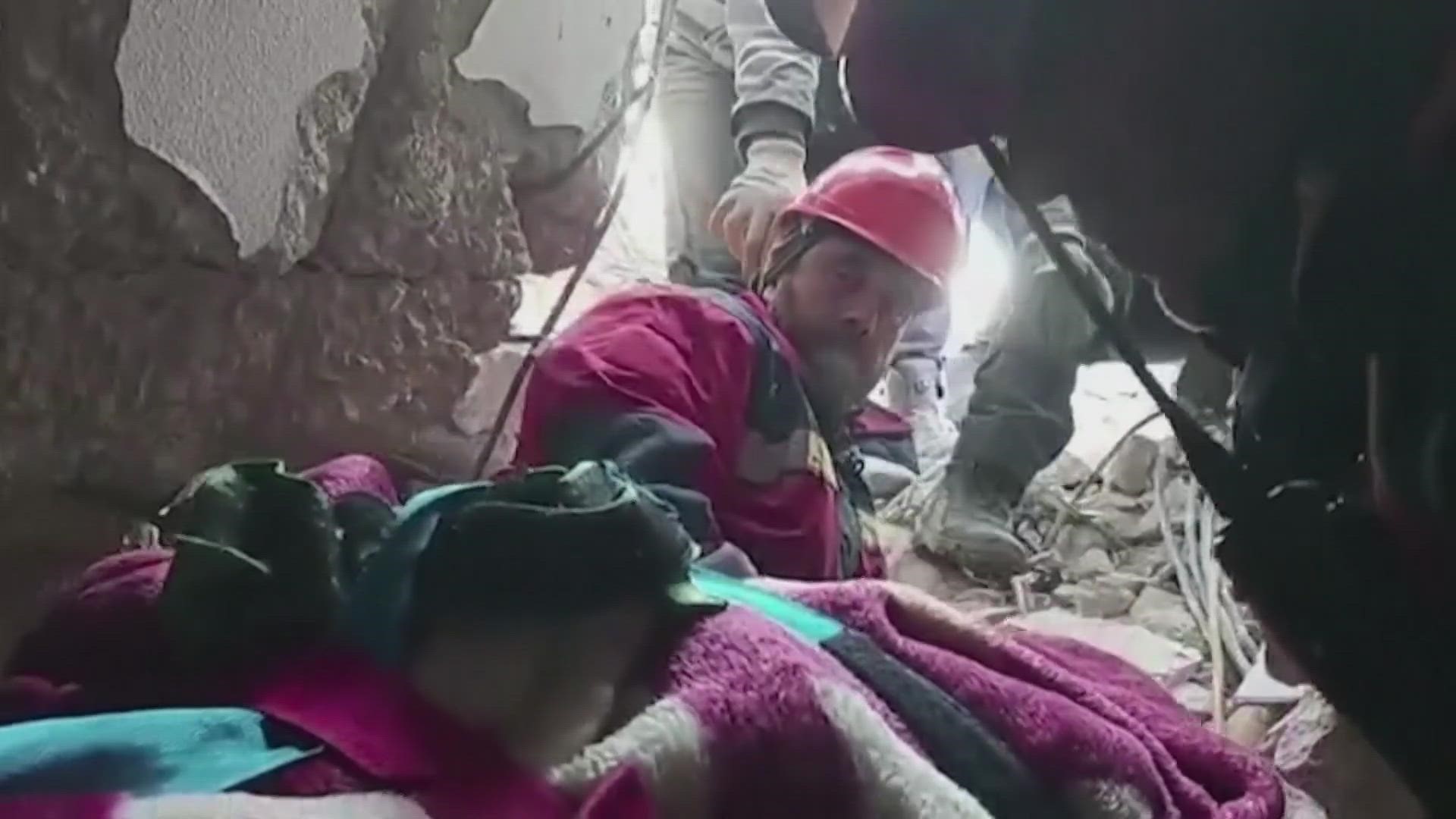WACO, Texas — Special missions like the massive earthquake causing widespread structural collapses near the Turkey and Syria border are what some Waco firefighters are training for.
Waco Fire Department has a Technical Rescue Team made up of a couple dozen members. They're trained to help in rescue and/or recovery missions for structural collapses, just like those who are helping serve in the Middle East after the historic, deadly earthquake.
Nick Guerrero has been part of the team for nearly five years. He said they are trained and taught skills, but once a disaster happens, you have to learn to adapt to have a successful mission. The Waco firefighter said the work he has seen being done after the earthquake from rescuers is incredible given the circumstances they are all in.
"We train in a perfect world, we have state of the art equipment, and it's an uncontrolled environment and now they're faced with real life situations ticking against the clock, trying to get these victims out alive," Guerrero added. "The resources aren't there in the perfect world that we have whenever we train. They're utilizing anything and everything that they can to affect and mitigate a rescue."
First responders and rescuers in Turkey and Syria have been able to pull people from the rubble, miraculously still alive. Waco Fire Engineer Dylan Karl said he isn't totally surprised that the rescues are still happening a week after the earthquake.
"There are certain collapses that will have void spaces in between the floors and the foundation when the building comes down, and it's not unusual for people to be found within those void spaces over the period of time," Karl explained.
Karl said the void spaces also allow for first responders to help treat someone stuck with medical equipment, food and water; as well as help rescuers get to victims of a structural collapse properly.
"They're having to tunnel in to those certain void areas and remove victims," he said. "An important aspect of removing that victim is having them packaged properly so you don't cause further injury."
Most of the damaged buildings from the earthquake have been concrete. The firefighters say that material can be hard to work in as when it's unstable, large pieces tend to break off. Both Guerrero and Karl said one of the key aspects in missions like structural collapses is for rescuers to be strategic in every move.
"Identifying those hazards and kind of how they react is what I would assume is what they are doing is trying to get a game plan on if we do this action, what will be the reaction to it as well," Guerrero explained about the possible actions of those working in Turkey and Syria.
"Anytime you're dealing with any sort of structural collapse, you have to really consider all aspects of that scene," Karl said. "If you move one piece of concrete, what is that piece of concrete holding up or is there a possibility that something else could fall off that building that's partially still standing so it's not a just run in grab them and pull them out. There is a calculated risk assessment that has to be made for each and every building itself."
There is hope amongst the devastating destruction after the earthquake, Guerrero said that has to do with the work being put in by those trained for these moments.
"It's a testament to the training that these skilled specialty teams that have been deployed from all across the world have conducted themselves," he said "They're giving these people a fighting chance because they've specialized in these skills, and they're able to locate these patients and give them hope and methodically take them out as well."
Waco Fire's Technical Rescue Team uses their structural collapse skills mostly for vehicles crashing into buildings. They're also trained to help in swift water, confined space, and trench rescues.

